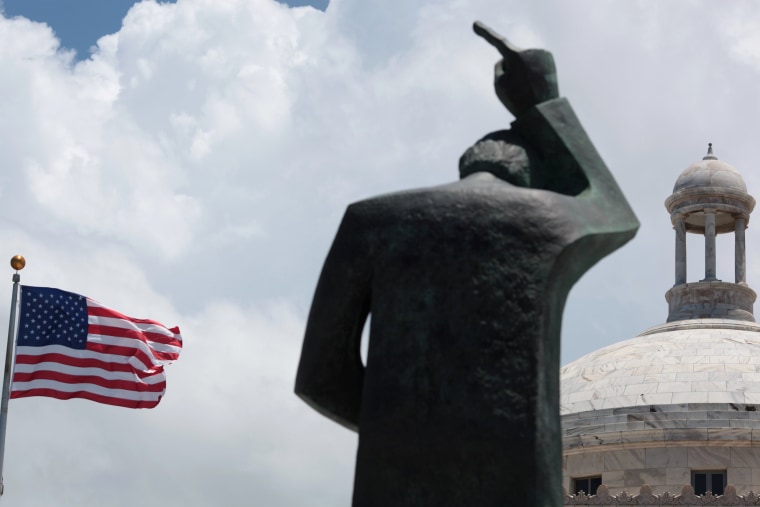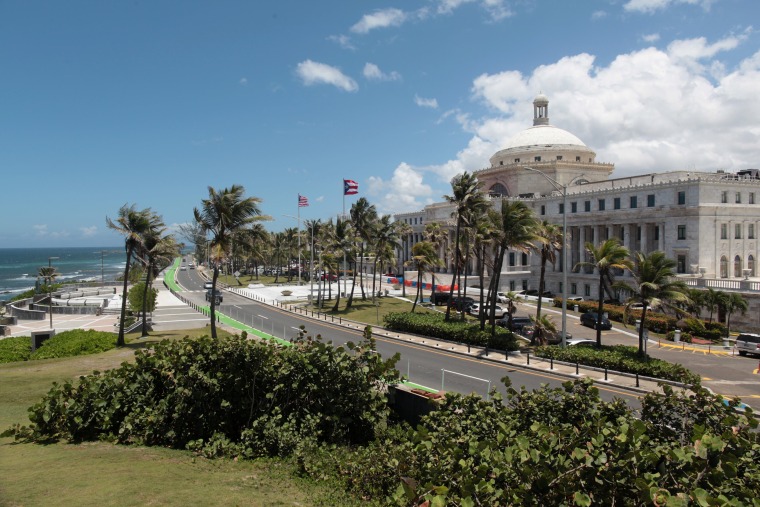When I was in fifth grade, a new boy showed up at my Catholic school in the suburbs of San Juan, Puerto Rico. He was a little bit rough and a little bit loud. He spoke English and Spanish with a different accent.
He was what we called 'Nuyorican' and in our young minds this distinction explained why he did not fit in. He left our school at the end of the year. I occasionally wonder, with a tinge of guilt, whatever happened to him.
Nuyorican is the name given to Puerto Ricans who migrated to the U.S. and their descendants. The term originally described the Puerto Rican diaspora located in the New York City area but today is loosely applied to those throughout the entire Northeast.
While many members of the Puerto Rican diaspora proudly describe themselves as Nuyoricans, the term can have negative connotations on the Island. It can be shorthand for Americanization and loss of ethnic identity. It can also be used to express class-based contempt.
“They are not real Puerto Ricans” is something you commonly hear about Nuyoricans on the Island.
This characterization of Nuyoricans shows a lack of empathy for the diaspora experience. At the end of World War II, Puerto Rico’s plantation economy shifted to manufacturing. Market dislocations forced Puerto Ricans to migrate in search of higher-wage jobs. Every Puerto Rican knows about the migration, but some in the Island seem to forget that there was no choice in the matter for so many families.

Most Puerto Rican migrants faced racial and socioeconomic prejudice. Their segregated neighborhoods and continued contact with the Island maintained and reinforced their sense of identity as Puerto Ricans. It is this Puerto Rican identity, shaped by experiences in the north, that propelled the diaspora to become politically active on behalf of its communities and of Puerto Rico.
Yet when Nuyoricans return “home” their reception may not be unlike that of my 5th grade classmate. They're tolerated, but not embraced, because they are a little bit different.
This estrangement is unfortunate because the diaspora is the best ally Puerto Rico will have for as long as it continues to be a colony.
The tension that exists between Puerto Ricans and the diaspora came into full display at the lead up to the National Puerto Rican Day Parade that will be held in New York on June 11. For the past sixty years the parade has celebrated Puerto Ricans who have made an imprint in this country.
RELATED: Oscar López Rivera Steps Aside As Puerto Rican Day Parade Honoree
This year’s 23 honorees include beloved personalities such as salsa legend Gilberto Santa Rosa and Olympian Laurie Hernandez. They also include Oscar López Rivera, who was announced to be honored as a National Freedom Hero.
Oscar López Rivera was convicted for trying to overthrow the U.S. government in his quest for Puerto Rican independence. He was a a member of the Armed Forces of National Liberation, known as FALN for its Spanish acronym. The FALN was considered a terrorist group by authorities and waged a series of bombings, including one in 1975 that killed four individuals at the Fraunces Tavern in New York City. López Rivera, who lived in Chicago, was never found guilty of injuring or killing anyone. He was pardoned by Obama in January 2017 and released from prison.
Spearheaded by New York City Council Leader Melissa Mark-Viverito, the decision to honor the recently-released López Rivera in the parade was supported by the majority of New York City’s Puerto Rican leadership and community. In Puerto Rico, however, the backlash was fast and furious. Puerto Ricans of all political stripes supported López Rivera’s release on the humanitarian ground that his long sentence was disproportionate to the crime. But many did not believe that someone associated with a terrorist organization should be called a hero. “Óscar López no me representa” became a rallying cry among Puerto Ricans in social media.
RELATED: Puerto Rican Day Parade Stirs Controversy, Loses Sponsors Over Honoree
Pressure built to boycott parade sponsors. AT&T, Coca-Cola , Goya Food, JetBlue and others dropped their support. In the end López Rivera decided to decline the parade’s tribute but will still march as a private citizen.
Many denounced Mark-Viverito and the parade leadership for politicizing the event by honoring a Puerto Rican independence icon. Others claim that the Lopez Rivera controversy has been used to galvanize pro-statehood support in a controversial plebiscite on Puerto Rico's status to be held on June 11, the same day as the parade. Some parade supporters suspect the Media Research Center, a right-wing conservative group in Washington, D.C., of fanning the flames.
The irony of it all is that island Puerto Ricans who had never been interested in the parade and even derided it, felt that they had a stake in it this year. To them Nuyoricans may not be “real Puerto Ricans” but they still understand that the diaspora is the face of Puerto Rico in the United States and they did not want López Rivera to serve as this public face.
RELATED: Opinion: Puerto Ricans Needs Unity, Not Another Parade Controversy
Island Puerto Ricans should keep in mind that the diaspora wields political power that is indispensable to the Island in this time of economic crisis. There are four representatives of Puerto Rican descent in Congress – Luis Gutierrez (IL), José Serrano (NY), Nydia Velázquez (NY) and as of the last election, Darren Soto (FL). They were elected to take care of their districts but they also take care of Puerto Rico. Regardless of how hard they work, Puerto Rico’s Resident Commissioner and the lobbyists hired by the Puerto Rican government are no match for four congressional votes.
For example, when territories were left out of Obamacare, these Puerto Rican members of Congress secured $6.4 billion for Puerto Rico. When it became clear that Puerto Rico could not pay its debt, they pressed the Obama Administration to deal with the crisis. And if the Trump Administration or the Puerto Rico Oversight Board overstep, these legislators will be the first line of defense.
Unfortunately this invaluable assistance is not fully appreciated on the Island, partly because people do not understand the difficulty of accomplishing anything for Puerto Rico in Washington DC. It's also partly because, to varying degrees, Puerto Rican members of Congress have committed the cardinal sin of meddling in status politics; Gutierrez favors independence, Velázquez has been associated with the Commonwealth party, and Serrano is pro-statehood. Soto has said he will support what the majority of Puerto Ricans choose.
The diaspora has always aspired to vote in Puerto Rican plebiscites. Puerto Ricans, however, believe that if one does not live in the Island one should have no role in deciding its political status. That may make practical sense except there is more to it.
RELATED: 4 Reasons Why Puerto Rico's 'Bankruptcy' Matters to U.S. Residents
The Puerto Rican electorate is almost equally divided between statehood and commonwealth. The pro-independence vote on the Island constitutes less than 5 percent. The politically active diaspora in the Northeast favors independence or the current commonwealth status. Allowing them to participate in a plebiscite could undermine the statehood vote.
Island opposition to diaspora participation in status votes might change over time as more Puerto Ricans migrate north, particularly to Florida and other southern states, bringing along their allegiances to the dominant statehood and commonwealth parties.
Unfortunately, Puerto Rico’s economy cannot wait for Puerto Ricans and the diaspora to find common ground on status. The Island economy is deteriorating fast. Every day more Puerto Ricans head north in search of jobs. There are now more Puerto Ricans living in the States (5.4 million) than on the Island (3.5 million).
If there is any hope for the future of Puerto Rico it will depend on the cooperation of Puerto Ricans in the Island and the diaspora. Island Puerto Ricans would be well-served to put their preconceptions of Nuyoricans and the other members of the diaspora aside and recognize their political strength and willingness to help the Island. Arguments over who the “real Puerto Ricans” is no longer relevant. Who has Puerto Rico’s best interests at heart is what counts.
CORRECTION (June 8, 2017, 2:30 p.m.): An earlier version of the story misstated Rep. Darren Soto's position on Puerto Rican statehood. He said he will support what the majority of Puerto Ricans choose, not that he supports statehood.
